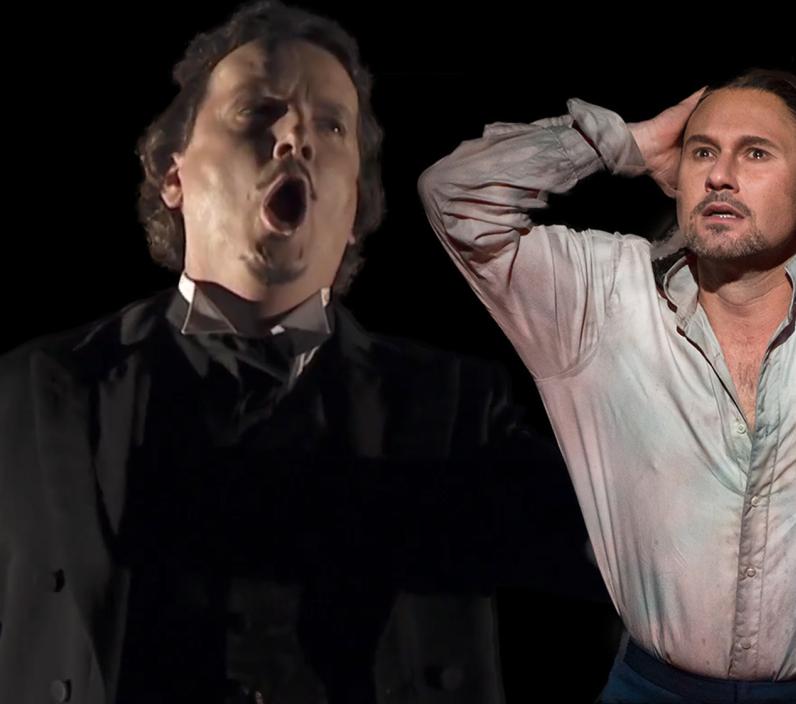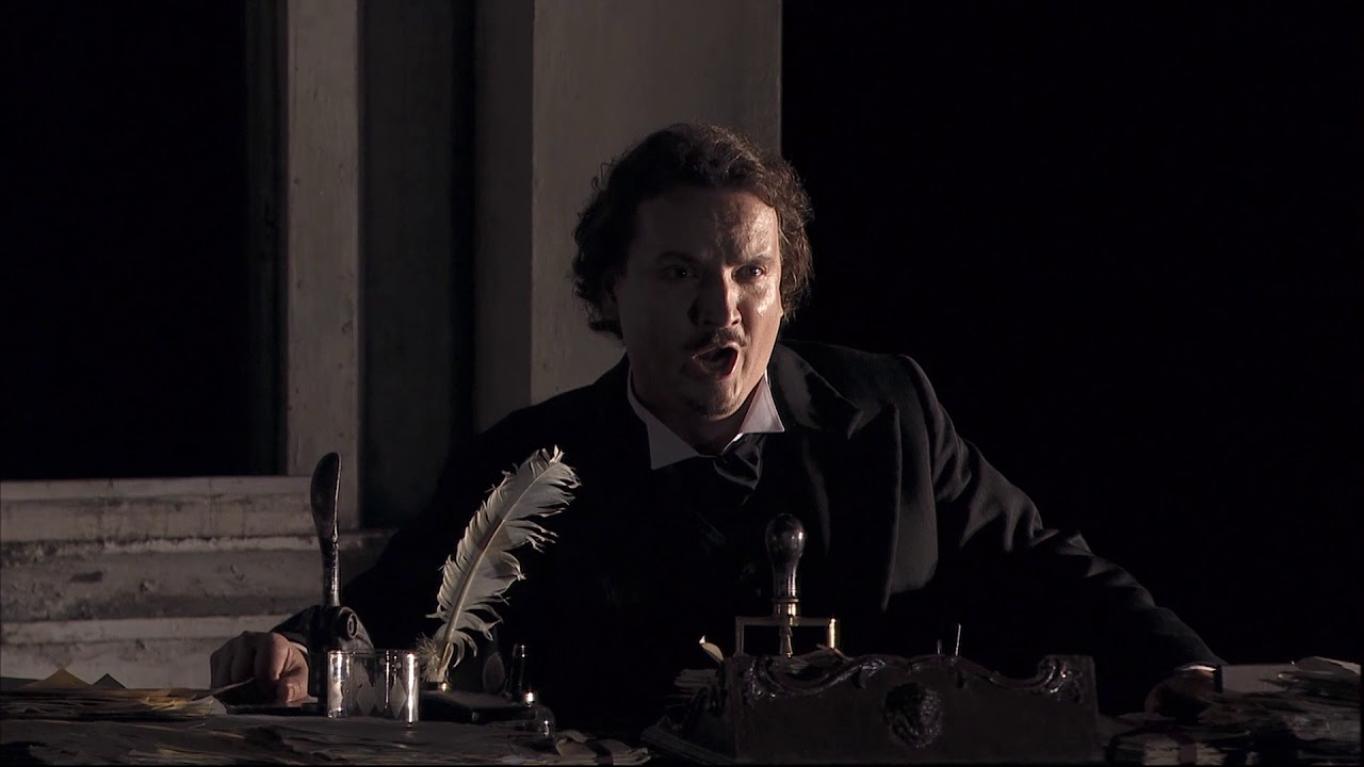

Summer hits: baritone and bass
Don Giovanni, the seductive baritone
Don Giovanni is a womaniser who doesn’t respect the rules. He’s one of the few baritone characters with a leading role. Mozart was one of the first composers to focus on the baritone as a key soloist, an honour hitherto usually given to tenors. Don Giovanni changes his dramatic style to adapt to the woman he wants to conquer.
The legendary seducer organises a party, during which he sings his 'Champagne aria'. Lasting for just two minutes, this aria is one of the shortest in all of Mozart's operas, but it is key to understanding Don Giovanni's character. It exposes his taste for the festivities, his desire to seduce and his inexhaustible energy.
Right in the middle
Baritones are the most common category of male voices. Higher than a bass but lower than a tenor, the baritone vocal range extends from the A two octaves below middle C to the A above middle C, though some are able to sing another two tones lower or higher. Subcategories include lyric baritone, cavalier baritone, dramatic baritone and bass-baritone.
Enrico Ashton in Lucia di Lammemoor is a lyric baritone. In the aria ‘Cruda, funesta smania’, he is furious that his sister Lucia has had a secret romantic rendezvous with his family’s enemy.
The lowest of the low
Basses are the lowest and darkest of the male voices. They have a low and rich, rumbling quality comparable to a cello, with a vocal range that extends from the D two octaves below middle C to the E above middle C. It is hard to find true basses; they are a rare voice in opera.
The bass voice is divided into subcategories, including basso cantante, dramatic bass, and bass-baritone. The characters are often demons, old men, kings, high priests or sometimes the voice of God himself.
One such character is the Commendatore. In the final scene of Don Giovanni he returns from the dead, invited by Don Giovanni, his murderer and the author of an attempted rape on his daughter. The public attends a surprising mass of the dead, a rise in power followed by a brutal silence. Don Giovanni was written in the year that Mozart’s father, Leopold, died. The latter was also his first teacher. In the film Amadeus, by Milos Forman, Antonio Salieri recognises in the character of the Commandatore a 'Leopold raised from the dead'.



